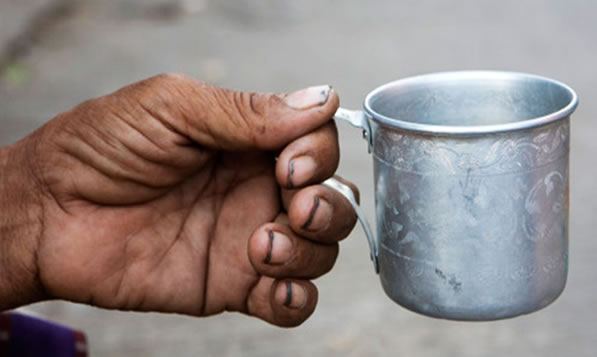 |
Mlonda yenge eshima mbele ya makolo. (Hemba) Mtu tajiri hawezi kuheshimu maskini. (Swahili) Une personne riche ne peut pas respecter les pauvres. (French) A rich person can’t respect poor ones. (English) |
Hemba (DR Congo, Zambia and Tanzania) Proverb
Background, Meaning and Everyday Use
The Hemba (or Eastern Luba) are an ethnic group in the Democratic Republic of Congo. History records that the Hemba language belongs to a group of related languages spoken by people in a belt that runs from Southern Kasai to Northeastern Zambia. There are other people who speak related languages. They include the Luba of Kasai and Shaba, the Kanyok, Songye, Kaonde, Sanga, Bemba and the people of Kazembe.
Today the Hemba live in northern Zambia, and their language is understood throughout the country. Some live in Tanzania. Others west of Lake Tanganyika and Lake Mweru in the DRC. They are also found several hundred miles up the Lualaba River. They migrated eastward to the Lualaba valley from the Luba Empire, probably sometime after 1600. They traded salt for iron hoes made in the Luba heartland and wore raphia cloth that came by way of the west. Living in villages, the Hemba recognize chiefs as their political leaders.
The Hemba religion recognizes a creator god and a separate supreme being. They make sacrifices and present offerings at the shrines of ancestors. When social harmony has been upset, religious leaders may demand offerings to the specific ancestors that have become displeased and are causing the trouble. Each clan owns a kabeja, a statuette with one body and two faces, male and female, on one neck. Sacrifices are made to the kabeja, which will convey them to the spirits. A receptacle on the top of the kabeja is used to receive magic ingredients.
The Hemba live by subsistence agriculture, growing manioc, maize, peanuts and yams. They also hunt and fish, to a small extent, to supplement their diet. Cash is obtained through panning alluvial copper from the streams. Many of their men are employed as miners in the copper belt.
Proverbs are used daily to advise, warn and educate the people. They are also used during birth ceremonies, funerals, weddings and dowry payment.
This Hemba proverb means that it is rare for a poor person to be respected by a rich person, or a boss, or a neighbor who is wealthy. A servant being respected by his master is equally a rare phenomenon, according to the proverb. In fact, a poor person is always assumed to be of no value to the community.
Biblical Parallels
- Luke: 16:19-20:“There was a certain rich man who was clothed in purple and fine linen and fared sumptuously every day. But there was a certain beggar named Lazarus, full of sores, who was laid at his gate.”
- Romans 13:7:“Render therefore to all their dues: tribute to whom tribute is due; custom to whom custom; fear to whom fear; honour to whom honour.”
- 1 Thessalonians 5:12-13: “And we beseech you, brothers and sisters, to know them that labor among you, and are over you in the Lord, and admonish you; and to esteem them very highly in love for their work’s sake. And be at peace among yourselves.”
Contemporary Use and Religious Application
Respect is one of the most powerful human values. And every human being deserves to be respected. Respect must be applied to everyone by everybody. Indeed, disrespecting people is sinning before God. Indeed, being the image of God, every person must be respected and honored, regardless of his or her status.
In today’s society, the rich look down upon the poor. In fact, it is like a taboo for the affluent to treat with respect those in the lower class. But we have a good illustration from the great teacher, Jesus Christ, who showed respect to His disciples. He even washed their feet. All along, Jesus Christ engaged Himself in wise actions and useful deeds to His servants.
Rich people always tend to focus more on their wealth, keenly monitoring what they pay out to a servant, rather than what that servant does for them. This is due to lack of human values such as love, respect and wisdom. Matthew 19:24 says, “It is easier for a camel to go through the eye of a needle than for someone who is rich to enter the kingdom of God.”
However, not all rich people are of bad character. In ancient Israel for example, there were many rich good people, blessed by God, including Abraham, Jacob, King Solomon, and Job. Even with all their wealth, they didn’t persecute, disrespect, or condemn their servants. Neither did they dare to blame God in any challenges they faced. They were wise, they feared God, and they knew that everything they possessed belonged to Him. Haggai 2:8:“The silver is mine, and the gold is mine, says the Lord of hosts.” It is pointless, therefore, to look down upon other people or make them suffer because of what you have; it all belongs to God.
A practical example is leadership in a Small Christian Community in Africa. It is very hard for a landlord to accept that a tenant is the chairperson of his or her SCC (a geographical small community or the church in the neighborhood). Or a houseowner that the cook is the chairperson of his or her SCC. But thus is why SCCs are a new way of being church – a church of equality and inclusiveness.
NOTE: This is Proverb No. 43 in a collection of 100 Hemba Proverbs and Wise Sayings by Atemu Ishiabwe, in collaboration with African Proverbs Working Group, Nairobi, Kenya.
Atemu Ishiabwe
Cell phone: +254 723 129 409
Email: ishiabweatemu@yahoo.com
Edited by Ben Chebweche Mabuto
Kenya, Nairobi
Cell phone: +245 720 994 093
Email: bmabutoz@gmail.com
Photographs provided by:
Cephas Yao Agbemenu
Department of Fine Arts
Kenyatta University
P.O. Box 43844
Nairobi, Kenya
Cellphone: +254 723-307992
Email: cyagbemenu@yahoo.com

